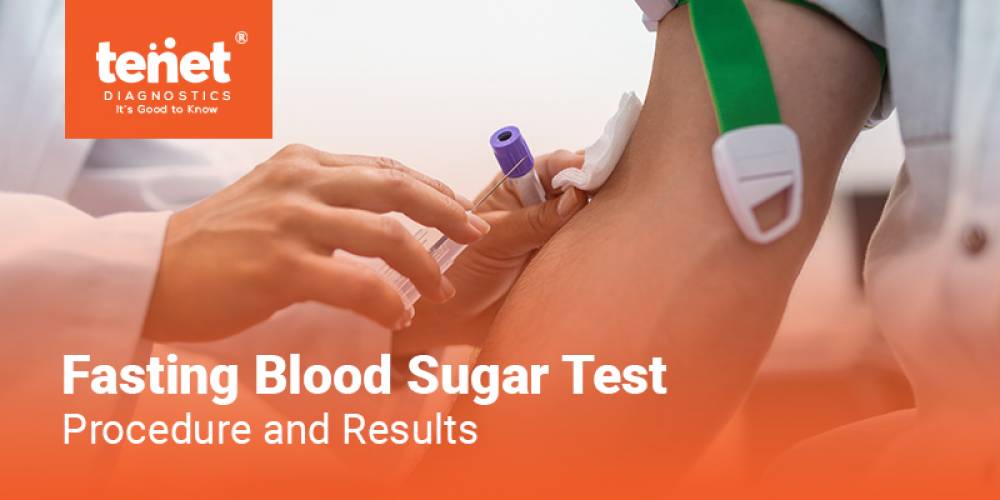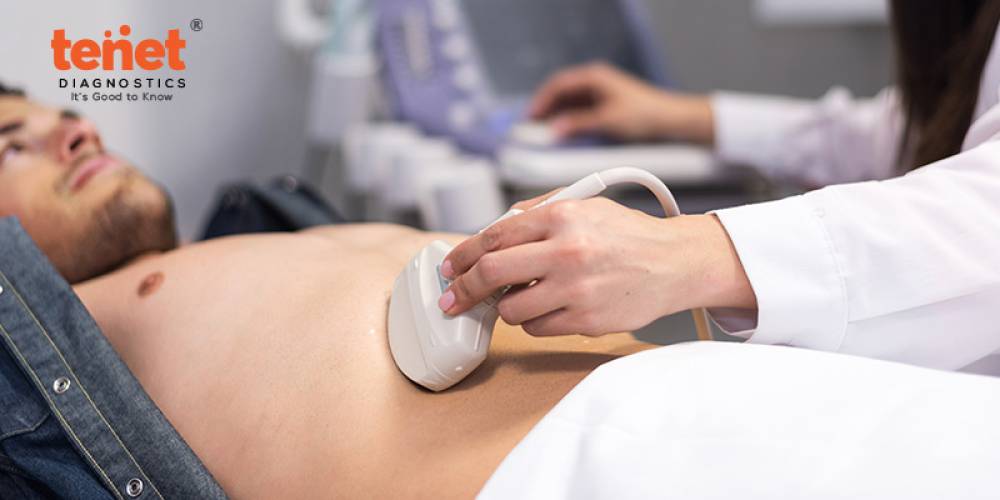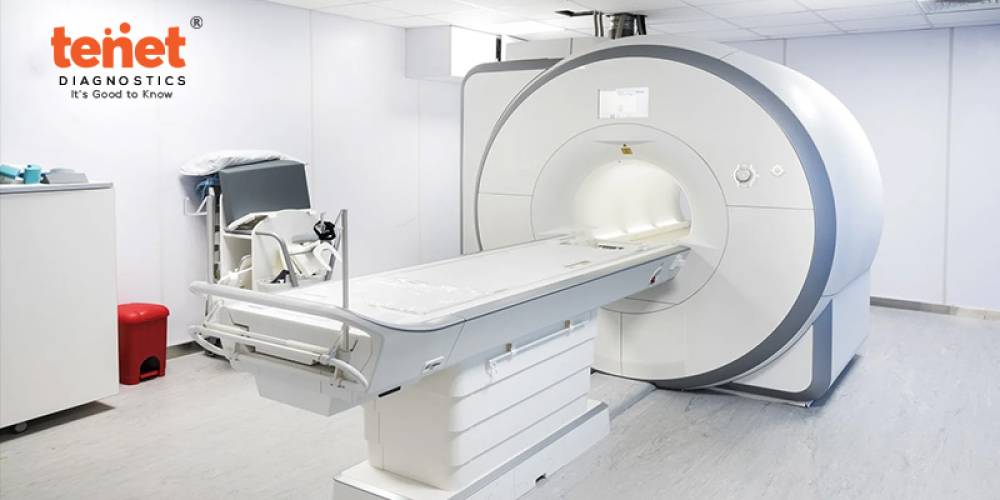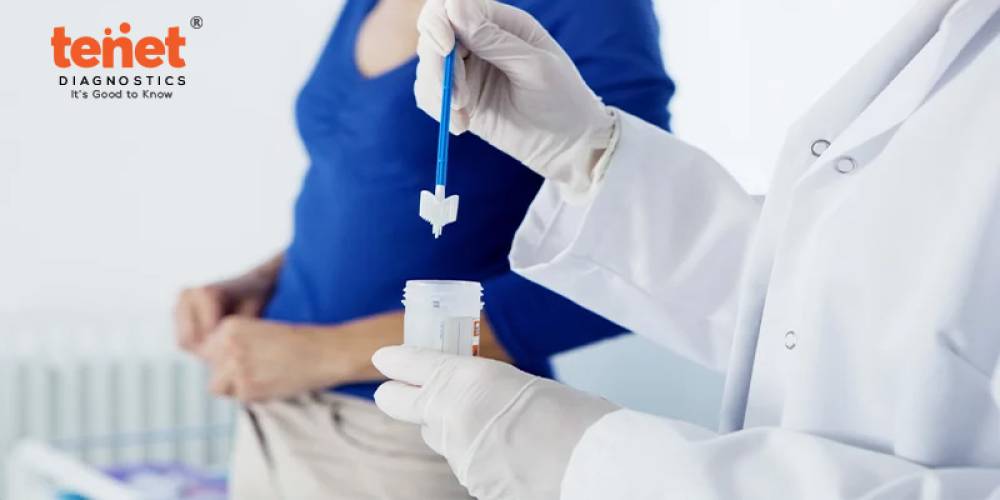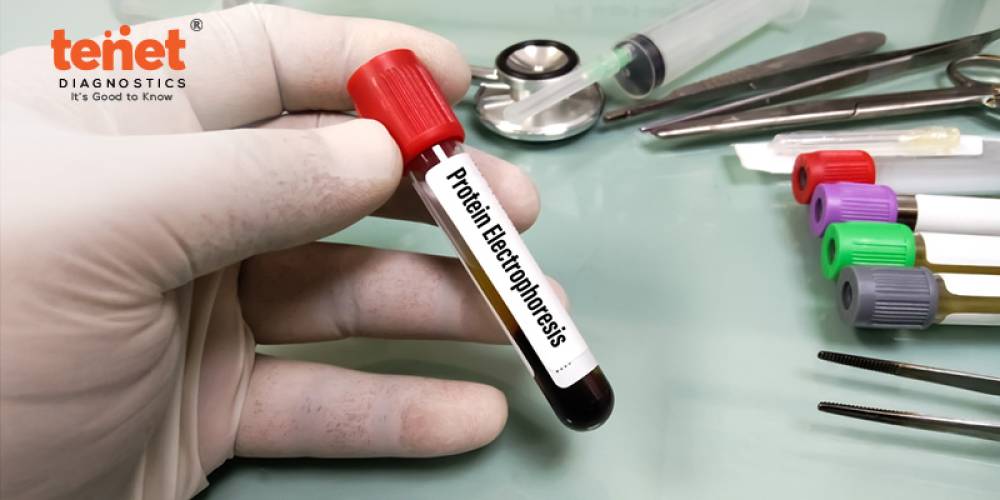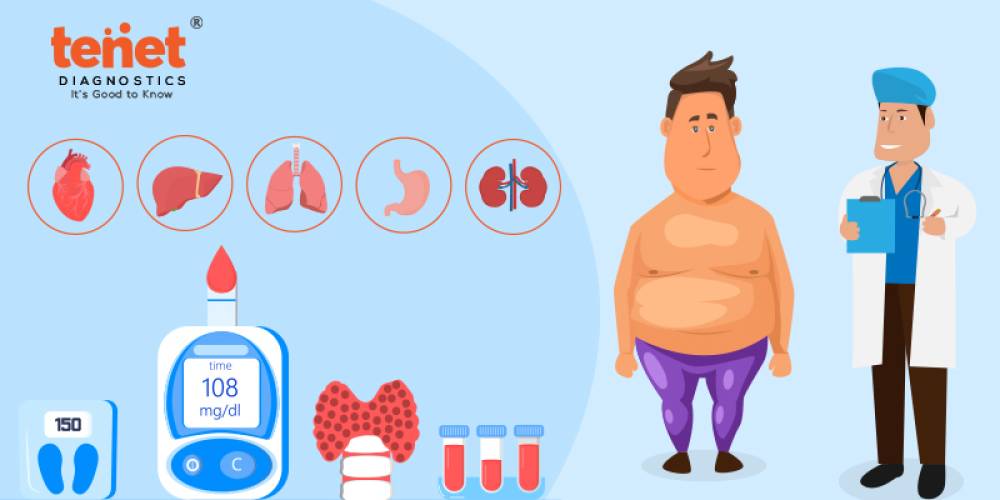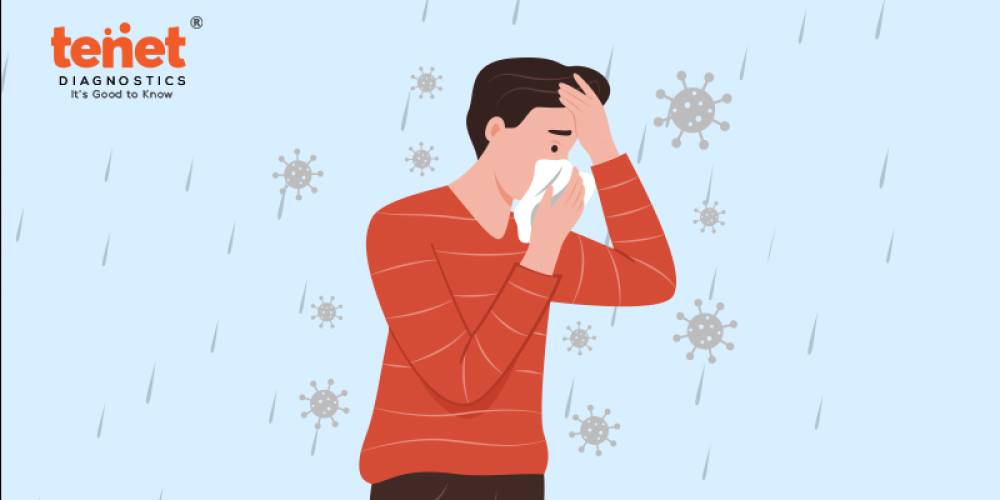A fasting blood sugar test determines the amount of glucose (sugar) in your system. Diagnosing prediabetes, diabetes, or gestational diabetes this way is simple, secure, and standard. A medical professional will either prick your finger or use a needle to take blood from a vein in your arm. Avoid eating or drinking anything (except water) for 8 to 12 hours before the test. People maintain their health by knowing when to get tested from the best diagnostic center in Hyderabad and what to look for, especially if one has diabetes or is at risk of getting it.
Insulin hormone helps transfer glucose from your bloodstream to your cells. Blood glucose levels, very high or low, can indicate a dangerous medical problem. For example, hyperglycemia, or high blood sugar levels, may be a symptom of diabetes, a condition that can cause severe and life-long health issues.
In addition to these illnesses, problems with your pancreas or adrenal glands may also contribute to high blood sugar levels. Low blood glucose levels (hypoglycemia) are common in patients with type 1 diabetes and those who use specific diabetes medications. Illnesses like liver disease can occasionally cause low blood glucose levels in people without diabetes, but it is uncommon. Severe hypoglycemia can cause serious health issues, such as seizures and brain damage if left untreated.
Purpose of Blood Sugar Test
1.jpg)
The main diseases detected or managed by glucose testing are type 1 diabetes, type 2 diabetes, and gestational diabetes. If one has diabetes, your blood glucose levels will increase. The hormone insulin is frequently in charge of controlling the blood sugar level. But if you have diabetes, your body either doesn't make enough insulin or the insulin it does produce doesn't work correctly. This causes the blood sugar to rise. If untreated, chronically high blood sugar levels can lead to blindness, renal damage, heart disease, and other serious illnesses.
Testing for hypoglycemia can occasionally also be done with blood glucose levels. This disease develops when blood glucose levels are too low, typically below 70 milligrams per deciliter (mg/dL). For example, people with diabetes who take too much of their prescription, such as insulin, exercise more than usual, or miss meals, may have hypoglycemia. Less frequently, various underlying diseases or drugs can result in hypoglycemia. The doctor may recommend a blood glucose test if you exhibit high or low blood glucose.
High blood sugar symptoms consist of:
· Fatigue
· Blurred vision
· Sores that don't heal
· Increased thirst and urination (peeing)
· Numbness or tingling in feet or hands
· Weight loss when you're not trying to lose weight
Fasting Blood Sugar Test Preparation
.jpg)
You have eight hours before your test to go without eating or drinking anything besides water. To avoid fasting throughout the day, you might wish to plan a fasting glucose test first thing in the morning. It's crucial to fast before a blood glucose test since it will yield more detailed findings that are simpler for your doctor to interpret.
Fasting Blood Sugar Test Procedure
A lab technician, nurse, or phlebotomist will draw your blood for testing (a person trained in venipuncture). If you have a fainting issue after medical procedures or are anxious about having blood drawn, let the lab technician or nurse know right away so they can take extra precautions.
The test is an easy, noninvasive blood test. The technician or person performing the test will take a tiny amount of blood from the arm. Then, your blood sample will be examined in a lab.
When asked which arm they should perform the test with, most participants chose their non-dominant arm. Your chosen arm will rest on a flat surface while seated. If necessary, roll your sleeve up to just above the elbow. To locate a vein in the crook of your arm, the technician will tourniquet your arm with a rubber band right below your bicep. Before inserting a tiny, delicate needle into your vein, they will clean the region with an alcohol wipe. You might feel some temporary pain.
The technician will remove the needle from your arm and apply a bandage, cotton ball, or square of cotton gauze to the injection site to stop the bleeding.
Normal Levels
.jpg)
Medical professionals use blood glucose levels to interpret the results of FPG tests. Milligrams per deciliter (mg/dL), diagnoses fall into the following categories:
70 mg/dL to 99 mg/dL - Normal
100 mg/dL to 126 mg/dL - Prediabetes/increased risk of diabetes
Over 126 mg/dL - Diabetes
Under 55 mg/dL - Hypoglycemia/dangerously low
The FPG test must be repeated a second if the findings are borderline or elevated and indicate diabetes. Alternatively, tests such as the hemoglobin A1C test, oral glucose tolerance test, or postprandial plasma glucose test may be carried out.
Monitoring
A random blood glucose test result of 200 mg/dL indicates diabetes. To confirm the diagnosis, your doctor will likely prescribe a fasting blood glucose test or another test, such as an HbA1c or a glucose tolerance test. If you had a post-meal blood glucose test, a reading of more than 180 mg/dL might indicate that your diabetes is not under reasonable control and that your doctor needs to change your medication dosage.
If you're utilizing the FPG test to track your fasting glucose levels, your doctor may need to modify your medication or treatment schedule in light of your results. A healthy lifestyle makes insulin work better for anyone with diabetes, whether they have type 1, 2, or gestational diabetes. In this regard, the fasting plasma glucose test is an indication to take action rather than a reason for concern.
Pregnant women can experience high blood sugar during their pregnancies. Having gestational diabetes is what this is. Most pregnant women are given a blood glucose test between weeks 24 and 28 of their pregnancy to check for this illness, but if you're at a higher risk, you might be tested earlier.
In Hyderabad, How Much Does a Fasting Blood Sugar Test Cost? The fasting blood sugar test cost in Hyderabad is around INR 150. You can avail yourself of it with a quick online search for "full body blood test near me."
The Final Word
The fasting blood glucose (FBT) test is a noninvasive blood test that can assess insulin function and blood sugar levels and estimate diabetes risk in people. Unusual results can help you decide whether to change your lifestyle or, if necessary, your medicine. A blood glucose test is a crucial procedure frequently used to identify diabetes or to assist those who already have the disease in managing it. Your doctor may request a blood glucose test for an annual wellness exam. However, discuss blood glucose testing with your doctor if you notice any new signs of diabetes, such as increased thirst, frequent urination, or blurred vision.

